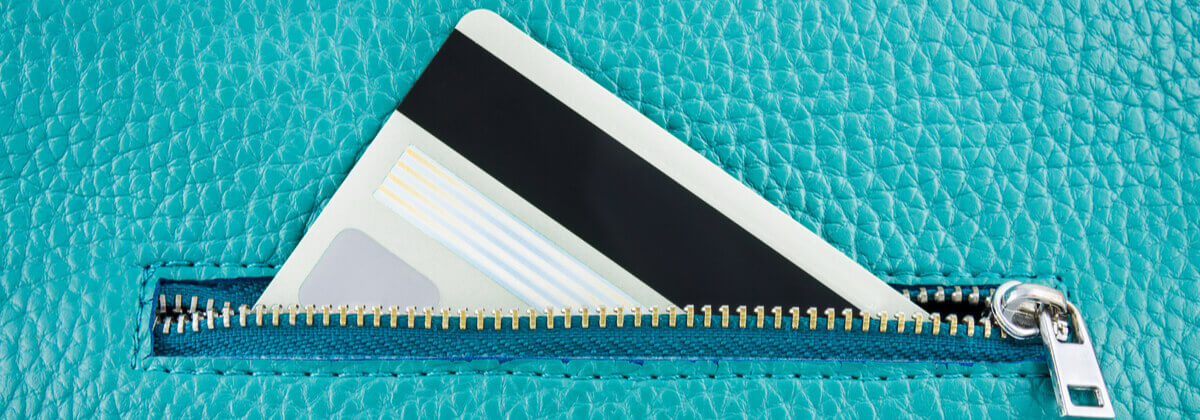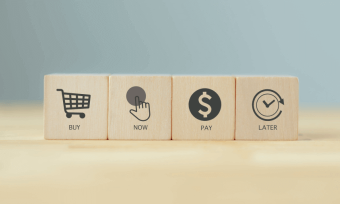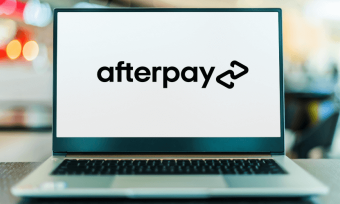Zip Pay is one of several ‘buy now, pay later’ services currently operating in Australia. Through these services, you pay for purchases over time, rather than paying the full amount upfront.
Over 10% of Australians use buy now, pay later (BNPL) services such as Afterpay, Zip and Klarna, according to Roy Morgan’s June 2020 Digital Payments Report. Afterpay is the market leader in terms of awareness, with 55.8% of Australians being aware of the service. Zip comes in second with an awareness rate of 35.2%. So, if you are thinking of using a BNPL service, how does Zip Pay stack up, and are there any risks involved?
What is Zip Pay?
Zip Pay is an interest-free BNPL service. Zip Pay provides its customers with a line of credit of up to $1,000, which they can use to make purchases at over 22,000 participating retailers.
When you use Zip Pay to make a purchase, Zip pays the store for you and you don’t need to pay for your purchase upfront. You can then make weekly, fortnightly or monthly repayments to Zip to pay off your account balance.
You can get a maximum credit limit of $1,000. However, depending on your personal and financial information, your credit limit may be less than this. Zip says you may be eligible to increase your credit limit in the future if you demonstrate an ability to meet your repayments on time with little or no missed repayments.
→ Read more: A guide to buy now, pay later providers in Australia
Is Zip Money different to Zip Pay?
Zip also offers Zip Money, which is a different product. Zip Money is a line of credit for amounts over $1,000, so it can be used to make larger purchases. Unlike Zip Pay, Zip Money is not 100% interest-free. Each transaction has a guaranteed interest-free period of three months, Zip says.
If you don’t pay off your purchase within the interest-free period, you will be charged interest. At the time of writing, the standard interest rate is 19.9% for new customers. However, Zip says to check your contract for specific interest rate details, as it may vary depending on the retailer.
How does Zip Pay work?
Your Zip Pay account can be used to make purchases either in-store or online. You can now make contactless Zip Pay payments using ‘Tap & Zip’. This is where you add your Zip card (available through the Zip app) to your Apple Pay or Google Pay digital wallet. Zip says ‘Tap & Zip’ is available anywhere you see the contactless symbol.
If you’re shopping online, the retailer’s website will redirect you to a Zip Pay portal where you can log into your Zip Pay account and confirm your purchase. To authorise your purchase, you may need to enter your password, PIN, e-signature, token or an SMS code.
How much does it cost to use Zip Pay?
Both Zip Pay and Zip Money charge a $6 account keeping fee at the end of the month if you still owe money on your account. There is also a minimum monthly repayment, which is from $40. If you don’t pay the minimum payment each month (or your remaining balance if it is less than this), there is a $5 late fee for Zip Pay and a $15 late fee for Zip Money after 21 days. Zip also charges a $15 dishonour fee if you do not have sufficient funds in your account at the time of your scheduled payment.
There is no establishment fee to set up a Zip Pay account. However, there is an establishment fee of up to $100 to set up a Zip Money account.
→ Read more: The hidden price of your Afterpay habit
To avoid fees, it’s important to keep on top of your repayments and ensure you have repaid your balance in full at the end of the month. If you fail to make your Zip Pay repayments on time, this can also have a negative impact on your credit score and make it harder for you to take out credit or loan products in the future.
How do I register for Zip Pay?
Before signing up for Zip Pay, you should consider whether it is suited to your financial needs, and, if you want to avoid fees building up, whether you will be able to pay off your balance each month.
To be eligible for a Zip Pay account, you will need to:
- Be at least 18 years old
- Be an Australian citizen or permanent resident
- Have a verified Facebook, PayPal, or LinkedIn account in your own name
- Have a good credit history
- Have your own valid and verifiable email address and mobile phone number
If you are applying for a Zip Money account, you also need to be employed in some capacity (some pensions may be accepted) and earn more than $300 in income per week.
If you are eligible for an account, you can sign up through the Zip website.
Be aware that Zip may perform identity and credit checks to verify your details and ensure you can make payments.
Where can Zip Pay be used?
Zip can be used either online or in-store at retailers/merchants that have signed up to offer Zip as a payment option. A list of participating retailers can be found on the Zip website. Some of the more prominent names include Amazon, Big W, Target, Kmart and Bunnings Warehouse. You can also use Zip to buy gift cards.
Zip may also be used to pay some household bills, such as energy, water, phone and internet, but only if the service provider offers the option of paying with BPAY. However, you may want to consider the merits of paying for basic utilities with a BNPL service – you may be better off simply paying these potentially significant costs up front if you can, rather than running the risk of paying late fees in the future.
Is Zip Pay appropriate for you?
At the end of the day, Zip Pay is a way of borrowing money. And as with any other credit or loan product, you should consider the pros and cons before applying for an account.
Potential pros
- Simple application process and relatively quick approvals, Zip claims
- Interest-free (although Zip Money does charges interest if you have not paid off your balance in the interest-free period)
- Allows additional repayments above the minimum amount
- Allows paying off your purchases in instalments, rather than one large amount
Potential cons
- Fees can add up over time. For example, Zip Pay charges a $6 account keeping fee if you have a balance on your account. It also charges a $5 fee if you don’t meet your minimum monthly repayments.
- Your credit score may be impacted. Zip says it may perform a credit check when you apply for an account. Additionally, not making repayments on time could affect your credit score.
- Any future credit or loan applications may be adversely affected if you are unable to make your repayments on time. According to Moneysmart, lenders consider BNPL spending when you apply for a loan.
Again, it’s worth keeping in mind that Zip Pay is a line of credit, and using it involves taking on debt. Canstar money expert Effie Zahos warns that Zip Pay and similar services “may not charge interest, but make no mistake, buy now pay later can potentially get you into just as much trouble as a credit card.”
According to Ms Zahos, the nature of these services can encourage individuals to spend more than they usually would, and this may result in inadvisable spending habits.
If you are struggling to make your Zip Pay repayments, you can contact Zip for support. You may be able to work together to find a solution, such as changing your repayment schedule.
You might also like to talk to a financial counsellor. Financial counsellors offer a free and confidential service. You can call the National Debt Helpline (NDH) on 1800 007 007.
Cover image source: Butsaya (Shutterstock).







